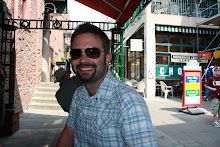
As a member of Generation X, or Generation W, or whatever useless designation the good people of the popular media have dubbed the current group of twenty-to-thirty-somethings in America, I have a great deal to be worried about. First, my generation, and the generation after mine, will inherit the debt, social trauma, and political whiplash from the half dozen or so wars we are fighting in order to advance our own agendas. We will be charged with repairing a painfully abusive medical system, a quickly deteriorating environment, and last but not least, we will be asked to write the check for the impending Social Security collapse when the generation of Baby Boomers retires.
While steps are being taken to find solutions to most of these problems, no one seems to concerned with the last issue. Some might say that this is because those with political clout, those who decide how money is spent and more importantly who gets said money, are in fact Baby Boomers. Or about to retire. Or both. So any cries for justice or change in our Social Security system so that the next two or three generations don't have to foot the bill for the Boomers and get left without a dime when it comes their time to retire are quitely shuffled off into that good night. So where is this all leading? To a book, of course. Christopher Buckley, author of "Thank you For Smoking" has taken aim at the Social Security system in "Boomsday".
The gist of the book is, of course, that the Social Security system is doomed to collapse, and an enterprising Gen Xer with a bit too much time and Red Bull on her hands, has begun to fight back. She is, like any young person living in the beginning of the 21st century, a rabid blogger, and has developed a solid following for her blog directed at stopping "Boomsday", the day when all of the Baby Boomers retire and bankrupt the system. Her Jonathan Swift-like solution leaves most people appalled, but shows that sometimes it takes drastic measures to get people to take notice. And amazingly enough, it almost works. Sometimes fiction doesn't seem that far off.









